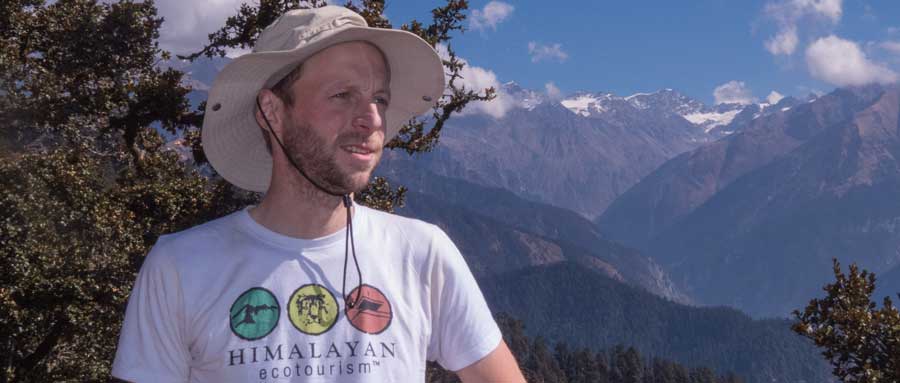What does it take to create a successful responsible tourism venture?
By Stephan Marchal, Published by the Outlook Responsible Tourism team. Link to the published article
Does one need special expertise to engage in responsible tourism? Perhaps. But what is definitely required is the right mind-set.
Being a businessman with knowledge or awareness about responsible or eco-tourism does not automatically make you a responsible tourism practitioner, especially when the ‘eco-‘ or ‘responsible-’ part is merely used as a greenwash.
The first condition to successfully engage in responsible tourism is to have a strong devotion, faith and commitment for a social and/or environmental cause. It is the love for a community and for their entire ecosystem, along with a will to bring a change for their betterment that will give you the energy and the suitable inspiration to do the right thing.
When you are geared with this love and devotion, responsible tourism is a very good path to work in a self-reliant mode for conservation through empowerment of the locals.
Let’s be clear about the context which I am discussing here: any rural area in India where education and awareness of the locals is rather low and where the natural resources are still an important component for their livelihood.
In such areas, there is always a kind of beauty—cultural, natural or both—and so, you could consider bringing in tourism as an instrument for performing your social and/or environmental work.
Before you start the actual process of setting up your venture, do ensure that you get the following two points right:
a. Start by connecting with a maximum of locals, understand the current scenario, envision business opportunities as a real entrepreneur, motivate those who are receptive and encourage them to collaborate, with you and between them. With a lower level of education, most of the locals will feel helpless in terms of marketing, customer engagement, management, accounts and technology. This is where your expertise should complement their expertise. After all any collaboration starts when we need each other, right? When a path for collaboration is found, the doors open and you are ready to start.
b. Developing a common vision for your joint enterprise is crucial. Not only a business plan has to be devised, but surely you must agree on how are you going to make your initiative responsible towards the community and the environment. Be sure the vision is meaningful for your local collaborators. Make them understand your motivation, let them become your friends, if not your family. Never should they feel or think that you are superior to them or their boss. You need to understand their point of view as well, and show that you respect it. Listen more, talk less. When the vision is clear to everyone, write and share it, and make it your social contract with the community for the future steps.

From this stage there will be a few aspects that you will have to take care of meticulously:
1. Being associated requires a very clear understanding between everyone. Hence, communication is something you always need to facilitate. Transparency, especially financial transparency, is a sine qua non condition to a successful venture in the field of responsible tourism. Only then will the locals start trusting you.
2. Everyone in your enterprise needs to have equal opportunities to grow economically and to develop their skills. Your enterprise model must be very fair and inspiring. And initially, for building their capacity you may have to bring trainers or link your local collaborators with institutions that can enhance their skills. Be a facilitator, always.
3. Use the advantage of working together to improve work conditions and to do more than just creating a money-making business. If you could successfully bring the people together, the competition evaporates and automatically a fairer business emerges. Working collectively not only ensures a path to growth but it should enable your organisation to work for projects rising from your common vision.
4. Try to keep enough space for learnings and creativity. Promote meeting, brainstorming, exchange of ideas. Ultimately there should be no need of training from outside. Your organisation should have the knowledge and skills within. The most experienced should be given the task to train the less experienced.
In addition to running your business if you can take care of the four points above, then you have given birth to a successful social enterprise in the field of tourism.
Of course you will find people who will be against you on the way. People who will be jealous or who will look unfavourably on empowerment of the locals and who may try to mislead them.
Be aware and alert, but don’t be discouraged, if you work with dedication and honesty from the very beginning, persevere and you will win!








